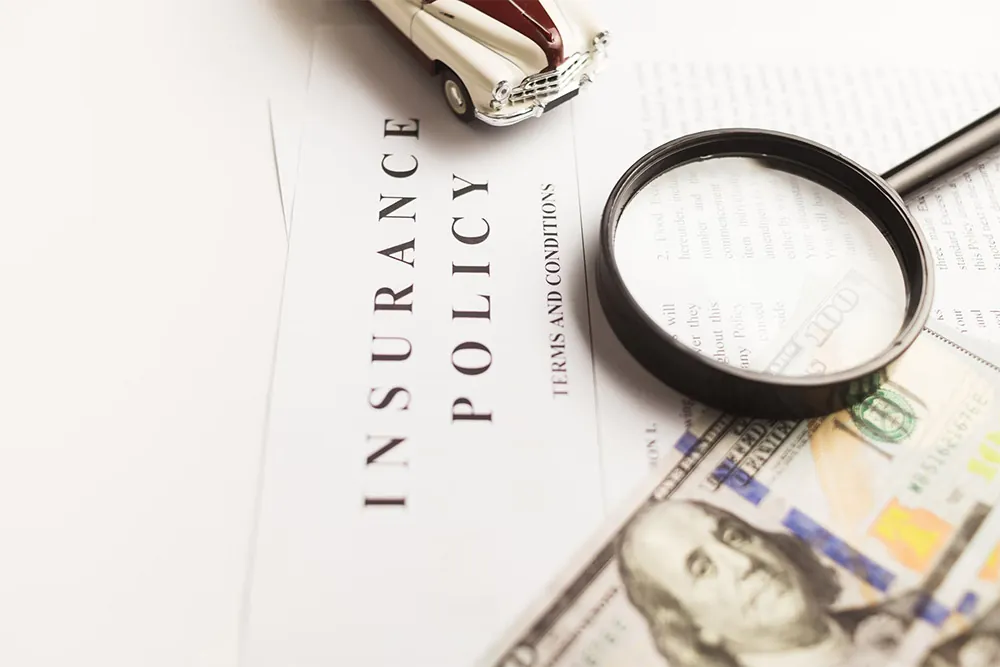Most personal injury claims, especially those involving car accidents, are settled way before going to trial. However, some cases end up in court for a vast number of reasons.
Until you can meet with a Denver personal injury attorney, here is some information about the disadvantages and advantages of accepting a settlement or going to trial.
Table of Contents
Factors to Consider Before Agreeing to a Settlement
You should never accept a settlement without talking to a personal injury lawyer first. If you were injured in a car accident that wasn’t your fault, you will need to answer one question, “do you want to try and settle with an insurance company or go to trial?” The answer to this question depends on various circumstances, including:
- The amount of your financial losses
- If you have any responsibility for the accident
- The severity of your injuries
Filing an insurance claim isn’t like filing a lawsuit. It means that you have informed the at-fault motorist’s insurance company that you were hurt due to their insured’s negligence and are seeking compensation for your injuries.
There are advantages to accepting a settlement, such as quicker payment and no chance of a jury verdict. However, you may be settling for considerably less than your claim is worth. The experienced Denver car accident attorneys at the Paul Wilkinson Law Firm can offer valuable help regardless of which road you pick. There are several different claims that an individual might file because of a car accident. For example, you could file:
- A collision claim
- A PIP (personal injury protection) claim
- An underinsured/uninsured motorist claim
It is not a good idea to try to handle the process of filing claims for your car accident yourself. There are numerous missteps that you can make that will cause you to lose money. Research shows that people get fair compensation when a lawyer represents them.
The Strength of Your Car Accident Personal Injury Claim
Whether to settle or go to trial may be contingent on the strength of your car accident personal injury claim. There are two parts to a claim: damages and liability.
Damages – There are two types of damage in a car accident personal injury claim: special damages (economic damages) and general (non-economic damages).
Special damages are factors that are calculable and can be totaled like lost wages and medical expenses. General damages are things that cannot be quantified but are just as important. These include:
- Disfigurement and scarring
- Pain and suffering
- Loss of enjoyment of life
- Permanent loss or impairment
Liability – This is just a technical legal term that indicates fault or negligence in an auto accident. When considering a settlement, you must assess the strengths of your personal injury claim. This includes considering what evidence your car accident lawyer has collected to prove that the other party was at fault. When considering a settlement, you must take into consideration:
- The amount of money being offered
- The strength of your case
- The probability of winning in trial and receiving more money than the insurance company is proposing
The Settlement Process
After an insurance company hears of an auto accident, the insurance adjuster starts an inquiry. They examine the vehicle and the collision site and review accident reports, photos, videos, witness statements, and the police report. The insurance company’s accident report allocates fault between the parties involved and generates an estimate of costs. This report will be the foundation of any settlement they offer.
Reaching a settlement agreement for your personal injury claim means that you and the insurance company of the other side have decided on a dollar amount that adverts going to trial and letting a court determine the amount for your injuries and damages. Settlement negotiations usually happen through email or phone calls. Negotiations usually don’t happen in person. do not occur in person. Getting a settlement has advantages and disadvantages, so you must weigh them and determine what’s best for your situation.
Advantages of Accepting a Settlement
Speed – Once settlement negotiations start, most cases are determined in six months. This is considerably less time than a typical trial. Settlements are more effective and cost way less than a court trial.
Cost – Receiving a settlement means you don’t have to pay expensive court costs since you aren’t going to trial.
Power – You have the power to accept or refuse any monetary offer the other side makes during settlement negotiations. If you don’t agree with the amount, your lawyer can negotiate for a better one. With a trial, the financial result is determined without your input.
Disadvantages of Accepting a Settlement
Possible lower compensation – Even though settlements are faster, the compensation might be lower in personal injury cases. When a person agrees to a settlement offer, it is typically a lower amount than what they might possibly get in a trial.
While getting a lower dollar amount may seem disadvantageous, some people believe it’s a reasonable trade-off for the guarantee of getting a definite amount, instead of risking a trial where they could possibly come away with nothing.
Lack of public accountability – Settlements, while giving the advantage of confidentiality, could also create a lack of public accountability. When a car accident case is settled out of court, the incident details and the other party’s actions aren’t put on public record, meaning the negligent parties might not face public scrutiny for their actions. They could also possibly repeat their destructive behavior.
No guarantee of fairness – While settlement negotiations give more control over the result, there is no guarantee that the compensation will be fair. The decided-on settlement amount could be significantly less than what might be granted in a trial. This is usually due to the need for a fast outcome or the dread of losing at trial. Moreover, once a settlement is agreed upon, it is typically final with no chance of a revision if the injured party later learns that the amount isn’t enough to cover medical expenses and damages.
The decision between settling and going to trial in a car accident personal injury case is a nuanced one, full of possible drawbacks and advantages. The quickness and discretion of settlements might interest most people by providing a fast outcome and a promise of some compensation. However, this way could also mean a lower, unfair settlement sum. While having a court trial might secure a bigger settlement amount, it comes with a cost: the cost of public exposure, more time, and an unsure outcome.
What it Means to Go to Trial
Auto accident personal injury trials are costly and long for everyone involved. Insurance companies are looking to reduce their liability after an accident.
If the other party was negligent and caused the accident, a quick settlement could lower their costs. However, once accepting a settlement, the insurance company and the at-fault driver are released from future liability. This means that if your injuries and cost of recovery are more than you first thought or you are out of work longer than expected, you can’t file another claim to get the additional money you need.
A car collision that results in severe injuries could result in a situation where no acceptable settlement is presented. In any case, where an insurance company performed a low-quality investigation and determination of fault, they might refuse to offer satisfactory compensation. Accidents like these could end in a trial.
Most people don’t want to go to trial. Trials can take months if not years. Court starts after weeks of filing and fact-finding which means paying legal fees. However, the chance of a substantial jury award motivates plaintiffs and makes defendants anxious. Although an attorney might be able to gauge a possible total for a jury award, they can’t predict what a jury will really do.
Settlements may be reached during or even just after a trial once defendants observe the strength of the plaintiff’s case and the jury’s attitude. Nonetheless, the cost and lengthy delays of a trial will wear more profoundly on the individual bringing the car accident personal injury claim for damages than on the insurance company defending it. The insurance company has many resources and isn’t enduring losses or injuries. The emotional cost of a trial can be huge, especially when testimony is required.
How To Find Legal Guidance
The sooner you talk with a lawyer after a car accident, the more advice and help you’ll receive. An experienced car accident attorney knows how to deal with their local insurance companies and negotiate for fair compensation. When the insurance company won’t offer you the settlement you need, your personal injury car accident lawyer will defend your rights at trial.
Let us know how we can help you. If you have been injured in an auto accident and need help in deciding on a settlement or trial, contact us today for a free consultation.


